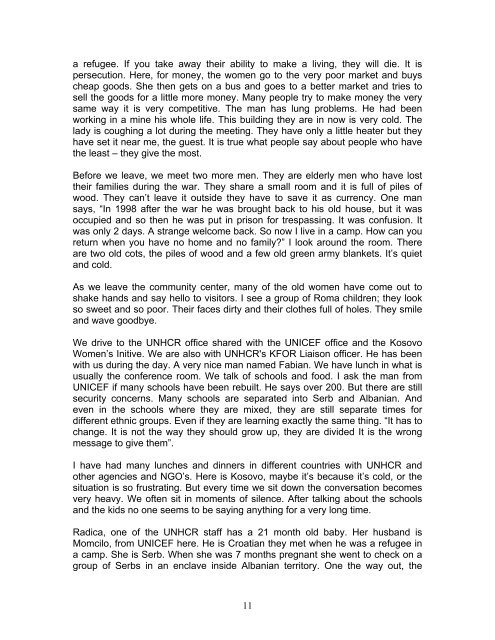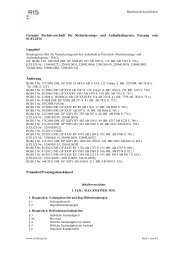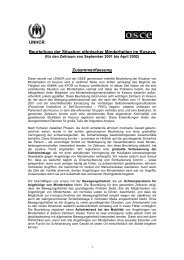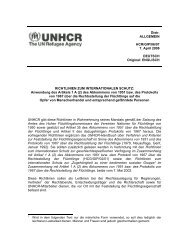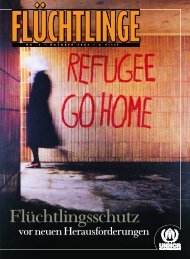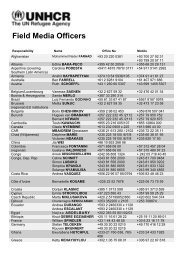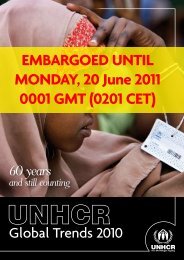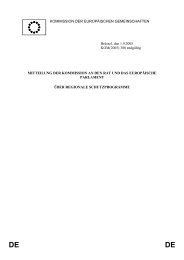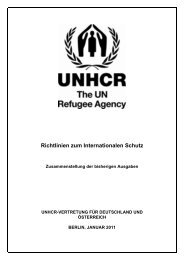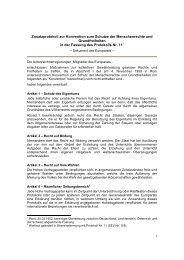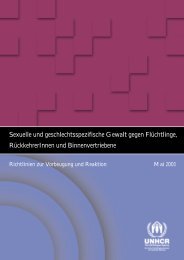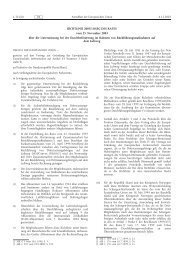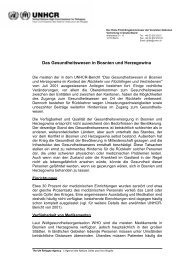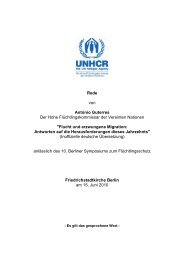You also want an ePaper? Increase the reach of your titles
YUMPU automatically turns print PDFs into web optimized ePapers that Google loves.
a refugee. If you take away their ability to make a living, they will die. It is<br />
persecution. Here, for money, the women go to the very poor market and buys<br />
cheap goods. She then gets on a bus and goes to a better market and tries to<br />
sell the goods for a little more money. Many people try to make money the very<br />
same way it is very competitive. The man has lung problems. He had been<br />
working in a mine his whole life. This building they are in now is very cold. The<br />
lady is coughing a lot during the meeting. They have only a little heater but they<br />
have set it near me, the guest. It is true what people say about people who have<br />
the least – they give the most.<br />
Before we leave, we meet two more men. They are elderly men who have lost<br />
their families during the war. They share a small room and it is full of piles of<br />
wood. They can’t leave it outside they have to save it as currency. One man<br />
says, “In 1998 after the war he was brought back to his old house, but it was<br />
occupied and so then he was put in prison for trespassing. It was confusion. It<br />
was only 2 days. A strange welcome back. So now I live in a camp. How can you<br />
return when you have no home and no family” I look around the room. There<br />
are two old cots, the piles of wood and a few old green army blankets. It’s quiet<br />
and cold.<br />
As we leave the community center, many of the old women have come out to<br />
shake hands and say hello to visitors. I see a group of Roma children; they look<br />
so sweet and so poor. Their faces dirty and their clothes full of holes. They smile<br />
and wave goodbye.<br />
We drive to the <strong>UNHCR</strong> office shared with the UNICEF office and the <strong>Kosovo</strong><br />
Women’s Initive. We are also with <strong>UNHCR</strong>'s KFOR Liaison officer. He has been<br />
with us during the day. A very nice man named Fabian. We have lunch in what is<br />
usually the conference room. We talk of schools and food. I ask the man from<br />
UNICEF if many schools have been rebuilt. He says over 200. But there are still<br />
security concerns. Many schools are separated into Serb and Albanian. And<br />
even in the schools where they are mixed, they are still separate times for<br />
different ethnic groups. Even if they are learning exactly the same thing. “It has to<br />
change. It is not the way they should grow up, they are divided It is the wrong<br />
message to give them”.<br />
I have had many lunches and dinners in different countries with <strong>UNHCR</strong> and<br />
other agencies and NGO’s. Here is <strong>Kosovo</strong>, maybe it’s because it’s cold, or the<br />
situation is so frustrating. But every time we sit down the conversation becomes<br />
very heavy. We often sit in moments of silence. After talking about the schools<br />
and the kids no one seems to be saying anything for a very long time.<br />
Radica, one of the <strong>UNHCR</strong> staff has a 21 month old baby. Her husband is<br />
Momcilo, from UNICEF here. He is Croatian they met when he was a refugee in<br />
a camp. She is Serb. When she was 7 months pregnant she went to check on a<br />
group of Serbs in an enclave inside Albanian territory. One the way out, the<br />
11


